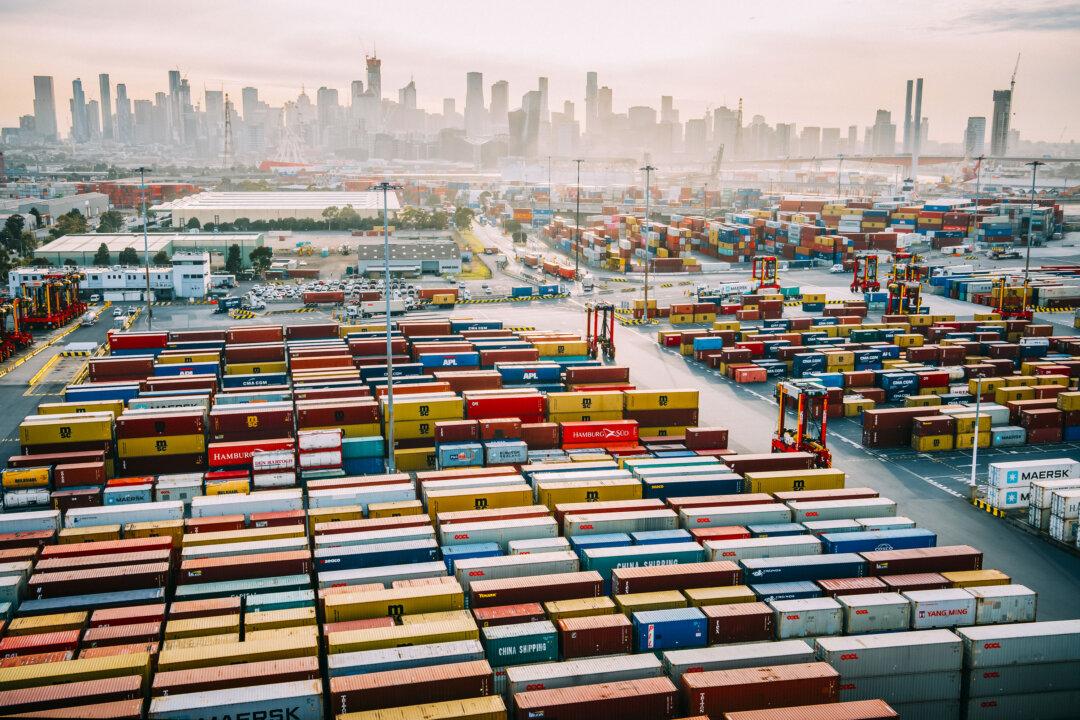Australia’s economic recovery has been stunted by an international supply chain crisis, with businesses struggling to secure critical supplies—a problem many expect will persist into 2022.
The pandemic wrought by the CCP (Chinese Communist Party) virus has made timely sea freight a rare commodity, with the intermittent closure of ports cascading into the clogging of shipping lanes and delays in deliveries.





